The Illusive Phantom Crackle
The illusive phantom crackle that plagued this early 60s Fender Bandmaster for years has finally been purged.
Music, opinions, and portfolio of Mark Eagleton, musician and web developer in Northern CA.
This is where I tell you what I really think. This website doesn’t support comments by design, that is what your blog is for!
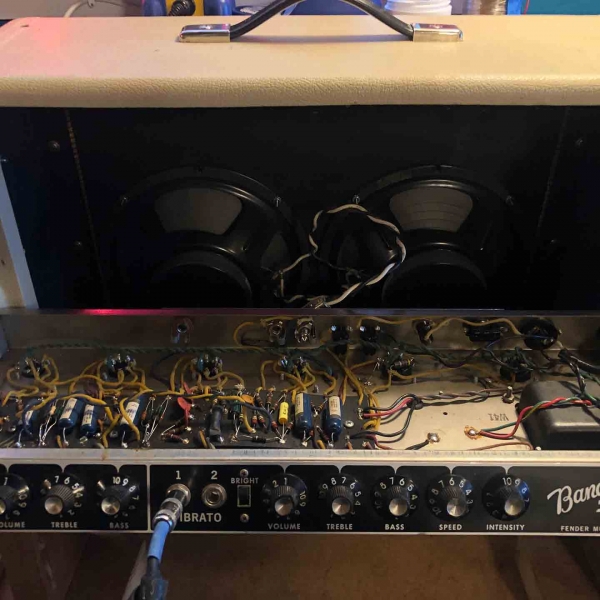
The illusive phantom crackle that plagued this early 60s Fender Bandmaster for years has finally been purged.
The Sacramento Valley is going through a bit of a live music boom as of late. This is a good thing. A healthy music scene has a lot of diversity and a lot of live music to choose from. The downside is that many venues are booked through the end of the year, and many of the gigs that do come up don’t pay very well. What is a fair price to pay for live music, anyway? Allow me to offer a musician’s perspective.
Well, I recently got myself joined up with another bluegrass band. I’m not really one to go joining bands all willy nilly. I have a good track record of sticking around in bands for a long time, so it’s important to me that everyone is easy-going, but takes professionalism as seriously as I do. And of course they need to be, you know, good. The folks in Red Dog Ash check those boxes for me.
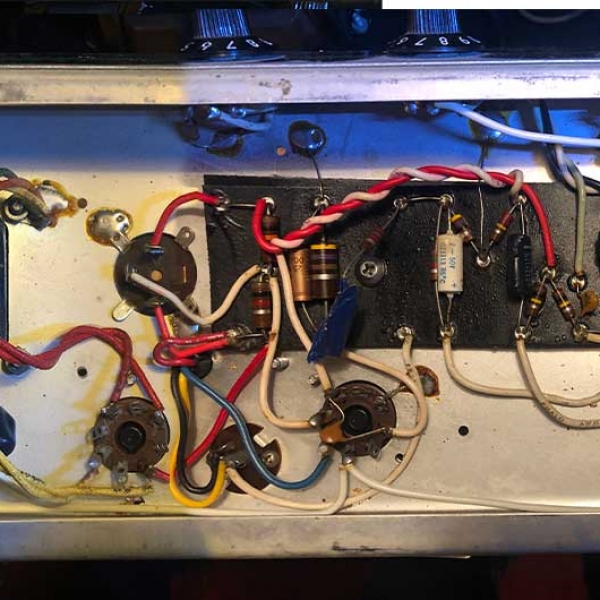
About three or four years ago, I found myself falling down a rabbit hole of tube amp repair videos. It started innocently enough with the humble idea of building a custom foot-switchable preamp/mixer for my double bass. That lead to me building a few guitar stomp boxes. Before I knew it, I was watching hours and hours of tube amp repair videos every week.
Tomorrow night, my wife and I are going to our first show at the HopMonk Tavern in Novato. The day before the show we received the following email from the talent buyer:
A forthcoming feature will allow Spotify users to block certain artists from playing in their libraries. This is a great solution for empowering subscribers to limit who monitizes from the music they stream, but what are the broader implications to others who benifit from the royalties of abusive artists?
I received this email at work via our company contact form. It made it through the Google ReCaptcha. It reads sort of like an SCP, and I found it pretty entertaining, so I thought I would post it here.
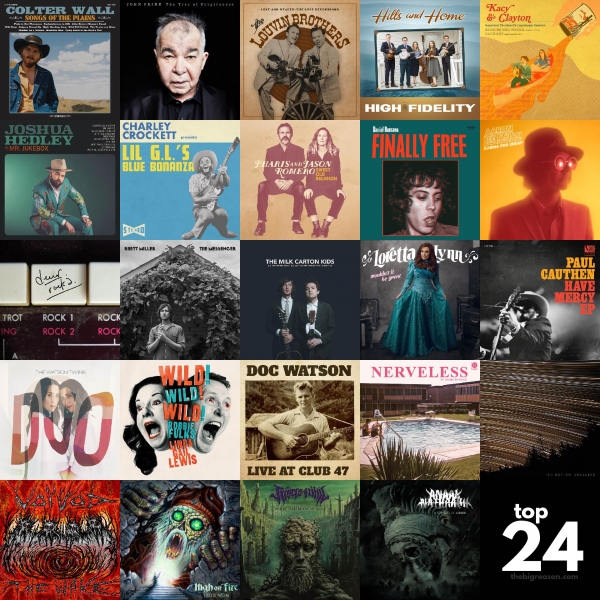
I know I’m a little late to the game with my album picks this year, but 2018 was just so rich with amazing new music that I couldn’t just poop this out all willy nilly. Unlike other folks with their best album lists, I believe in waiting a few weeks after the new year to let all the late releases settle in with me. And it’s a good thing I did, as a few late December releases made my list!
As with last year, this largely reflects my music listening at work. These lists tend to be more metal-heavy as this is where I do most of my headphone listening.
I’m a segmented sleeper, and am usually up between 2 and 5 a.m. on any given morning. I sometimes pass the time by giving sympathy and advice to sufferers on the /r/misophonia subreddit. Recently, I’ve noticed a trend of teenagers complaining about their parents hassling them about wearing headphones at the dinner table. As a father of teenagers, a headphone enthusiast, a music lover, and a Misophonia sufferer, I feel I am uniquely qualified to advise in these situations when asked.
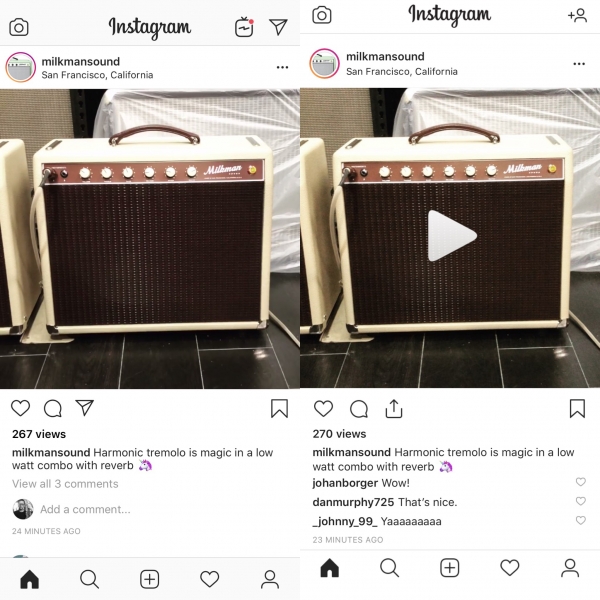
I was an early adopter of Instagram—well before the Facebook acquisition. For some unknown reason, I have never seen an ad or sponsored post in my feed. Until recently.
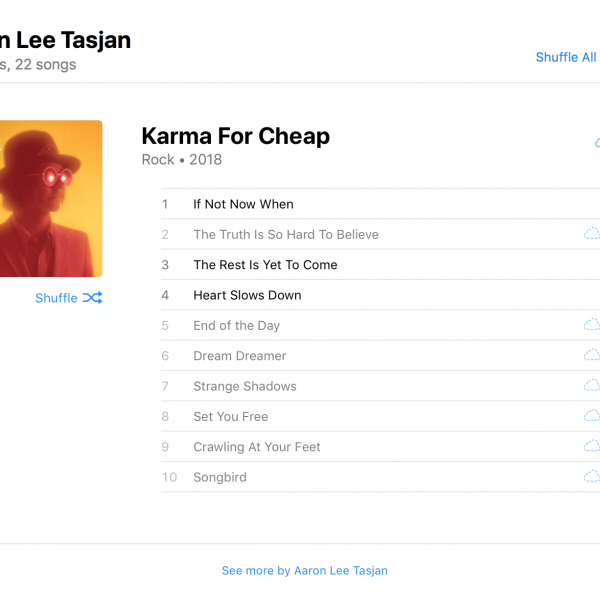
The trend in new releases is to trickle out a song each week or so leading up to the release date of your new album. As an artist, I understand this. As a music fan, it can be mildly annoying. As a heavy Apple Music user, it’s usually a pain in the ass. Not all pre-releases are created equal, or so it seems.
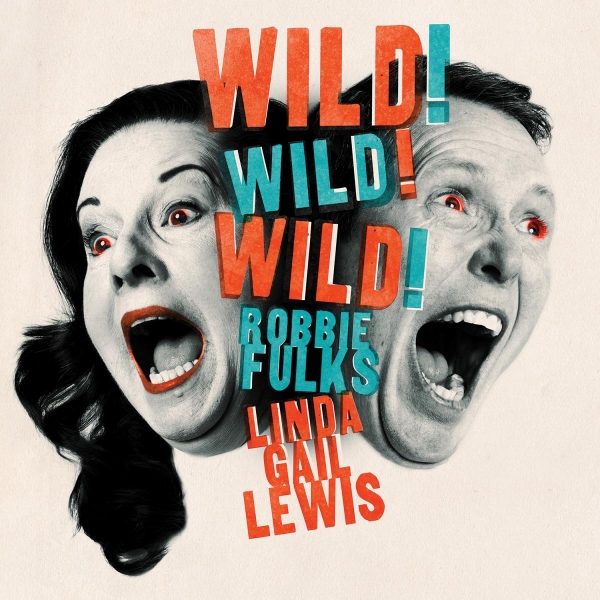
I don’t know if there is anyone Robbie Fulks doesn’t sound amazing with, but Linda Gail Lewis isn’t it either.
My office is moving to another city and my commute is going to drastically change. For drivers, this move will be fairly trivial. For low-car folks like me, it poses some significant challenges.
I just received an email from Record Bird, a new release tracking app, announcing that they are shutting down due to financial difficulties.
Over time, we witnessed that it became more and more expensive for us, but also for artists to get fans to download an app. Yet scale was the only way to create a sustainable and economically profitable model.
Source: email newsletter from Record Bird not published online
After 25 years of playing live music, I have a stockpile of horror stories of gigs gone wrong, but I think I can count the number of cancellations I’ve had to deal with on two hands. Most had to do with weather, but not all of them.
As most web developers do, I sit in an office chair for a significant portion of my day. As most web developers don’t, I take regular breaks where I walk briskly around town, or cycle across it. Ergonomics are not my primary concern, but comfort certainly is. Is their a chair for me?
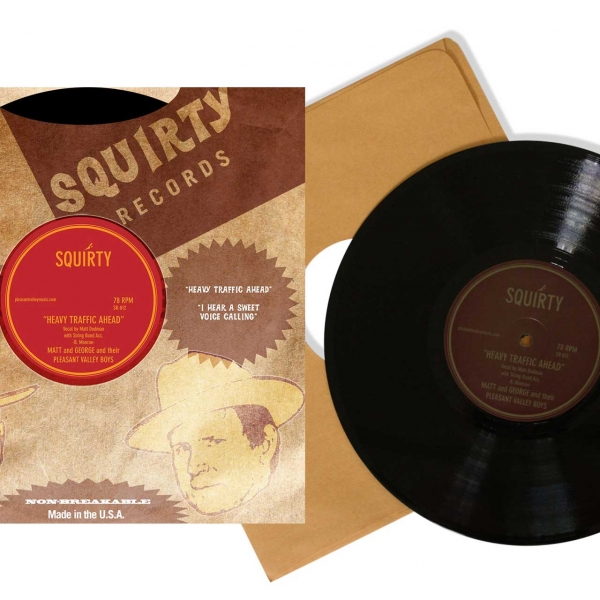
In episode 7 of The Menu Bar podcast, Zac Cichy and Federico Viticci go deep on streaming music services. They talk specifically about how streaming services have not only changed the way we listen to music, but the music itself that artists create. It was an inspired and extremely enlightening discussion—as is par for the course on The Menu Bar (consider supporting their Patreon). I have a counterpoint, though.
Martin unveiled their new line of premium ukulele strings this week at NAMM 2018. They appear to be Aquila Lavas.
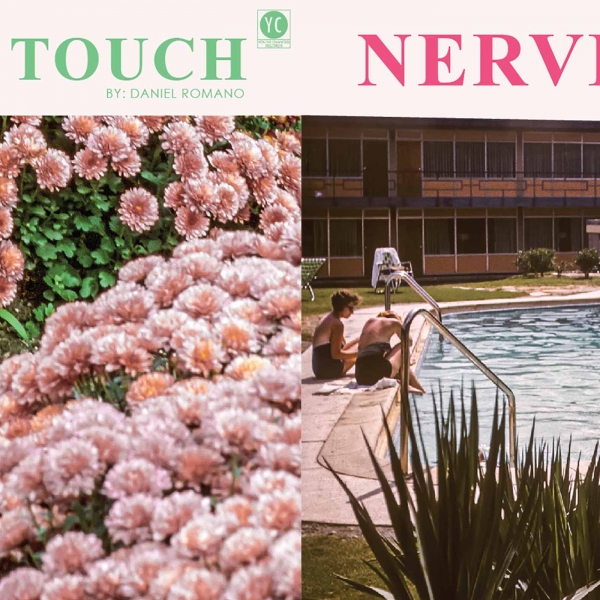
How about we break out of the new release holiday slump with a new Daniel Romano record! No? How about two!